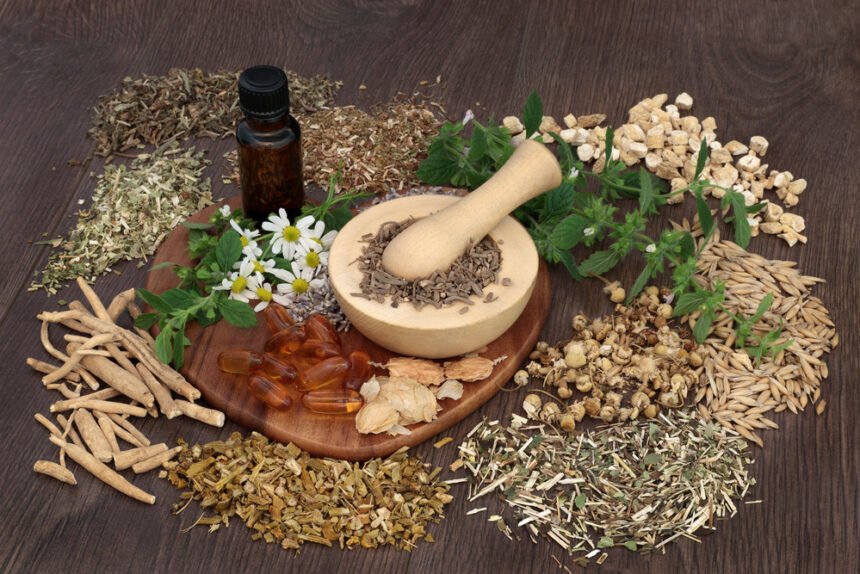Depression and anxiety are the most common mental health disorders affecting adults worldwide. Although they present with different symptoms, anxiety and depression are almost inextricably linked with one another. Major depressive disorder is a disorder that is the leading cause of disability worldwide.
While antidepressants are among the most popular psychiatric medications out there, followed closely by anti-anxiety medications and hypnotics, not everyone wants to use a prescription medication right off. Many people would prefer using more natural remedies to start and see if their symptoms get better.
If this is you, you have managed to find the right article. Here we have several remedies that can benefit both anxiety and depression. The bonus is that these are all natural things that you can do or change as a part of your daily routine to help alleviate your depression in a holistic manner.
Get Outside
Before we relegated ourselves to offices and concrete jungles, human beings evolved to be outside. Getting outside, specifically to a place where there are trees can rapidly lower stress hormone levels, lower blood pressure, and heart rate. Sunlight also helps to release endorphins, which are vital in combatting anxiety and depression.
Change Your Diet
While a bout of depression or anxiety may cause some people to reach for comforting junk food or to skip meals, this may have a depression- and anxiety-inducing effect in the long run. Aim for a diet that is low in inflammatory foods, highly processed carbohydrates, and junk food. Look for nutrient-dense food that will provide all your daily vitamin and mineral needs.
Set Attainable Goals
A long to-do list can induce enough anxiety that you end up doing nothing at all. Instead of setting yourself to a long list of goals, choose one or two smaller goals. For example, instead of cleaning the entire house, focus on getting one room cleaned. If your email inbox is overflowing, aim to address any that are time sensitive instead of trying to clean the entire inbox.
Set a Sleep Schedule
Getting too little sleep can amp up anxiety much like getting too much sleep can feed depression. Anxieties can keep you awake at night and make you depressed when your brain cannot come up with a solution because it needs rest. Aim for between 7 and 9 hours of sleep each night. Set your sleep schedule for similar bedtimes and waking times every day, even on weekends.
Try CBD
Cannabidiol, also known as CBD, is one of hundreds of different cannabinoids found in the cannabis plant. While more research needs to be completed, most scientists believe that CBD may be beneficial in treating a variety of mood disorders, including anxiety and depression. While there are many ways to incorporate CBD into your health regimen, one of the most popular ways is by vaporizing CBD oil in one of the many vaporizers available out there. Vaporizing provides a way to get on-the-go CBD for those moments when anxiety strikes.
If you’d prefer not inhaling anything other than air, then CBD is available in a variety of other forms as well. CBD edibles and drinkables are available in dispensaries and online and making their way into stores nationwide. It is also available as a tincture and in capsule form.
Exercise
Exercise has plenty of benefits, not the least of which is the release of feel-good endorphins. Any type of exercise can work towards uplifting your mood; what is important is to pick something that you enjoy and are willing to do at least five days a week. Take a yoga class or go for a walk. As little as 30 minutes of activity a day can provide an effective mood boost, particularly if you’re not already active.
Volunteer
Another way to boost your mood is to help others. Instead of focusing on your own world, you are forced to expend your attention on someone else’s needs. Volunteer to walk dogs at a local animal shelter or volunteer to provide company at a local nursing home. Helping someone else not only does something good for them, it also can shake you out of your funk and feel better about your own situation.
Try Something New
Doing the same thing day after day can leave anyone feeling like they are in a rut. Switching things up can help get less used neurons in your brain firing, which can help to alter brain chemistry and relieve anxiety and depression. Consider taking a creative art class or taking a cooking class to improve your overall well being.
Try Talk Therapy
Cognitive behavioral therapy (CBT) has been found in many cases to be more beneficial in treating depression than medication. Although CBT is not the only form of talk therapy, it may help. This is because often, people find talking to a stranger who is trained, such as a counselor or a therapist, is easier than talking about their problems to family or friends.
Final Thoughts
Millions of adults worldwide deal with the symptoms of anxiety and depression. While many find prescription medication to be helpful, others may wish to go a more holistic route. Practicing any of the above suggestions may just help you with your depression and anxiety and teach you ways of coping when they strike in the future.

